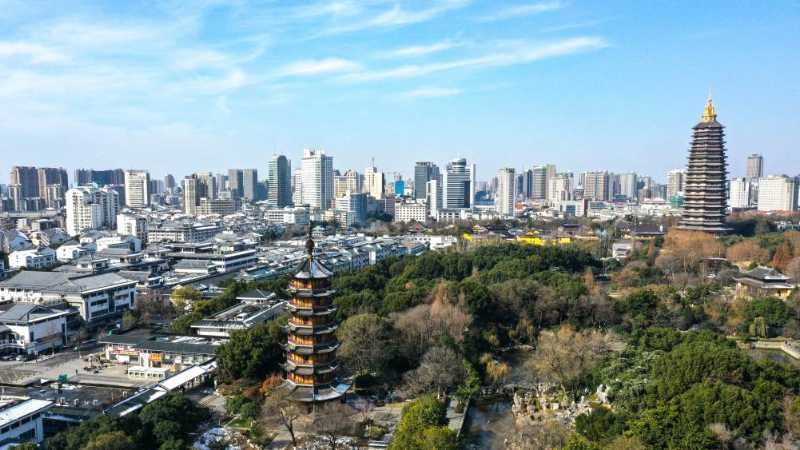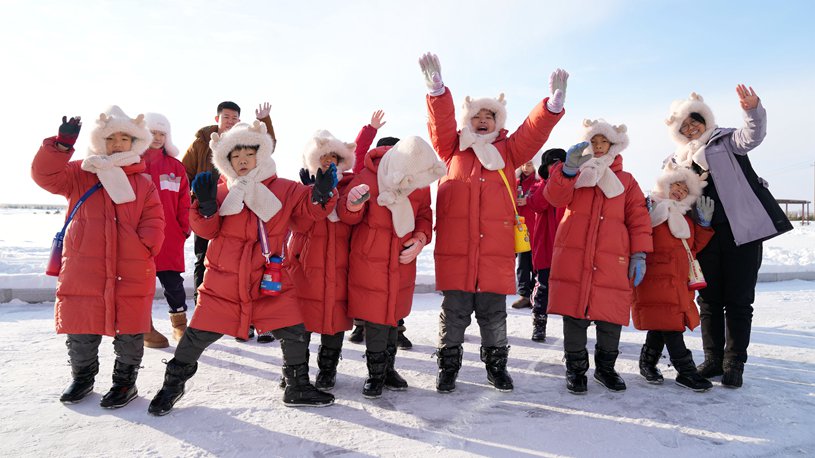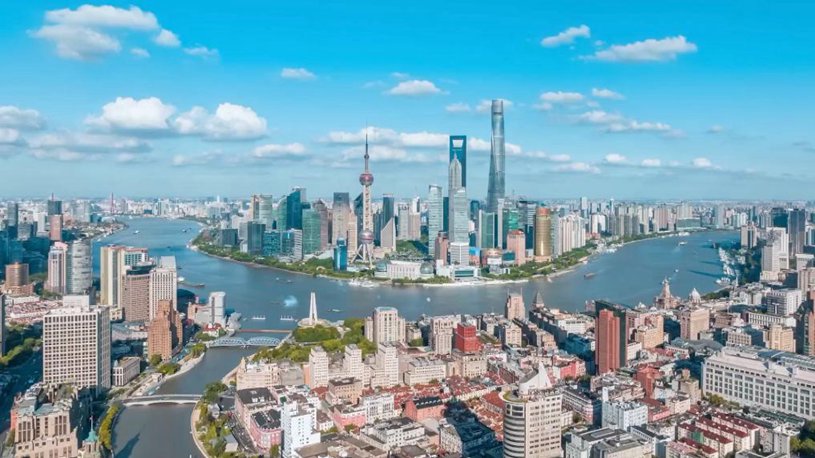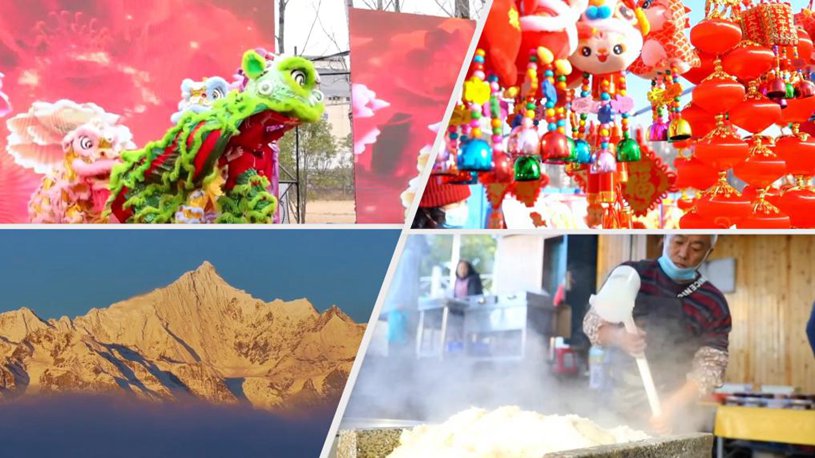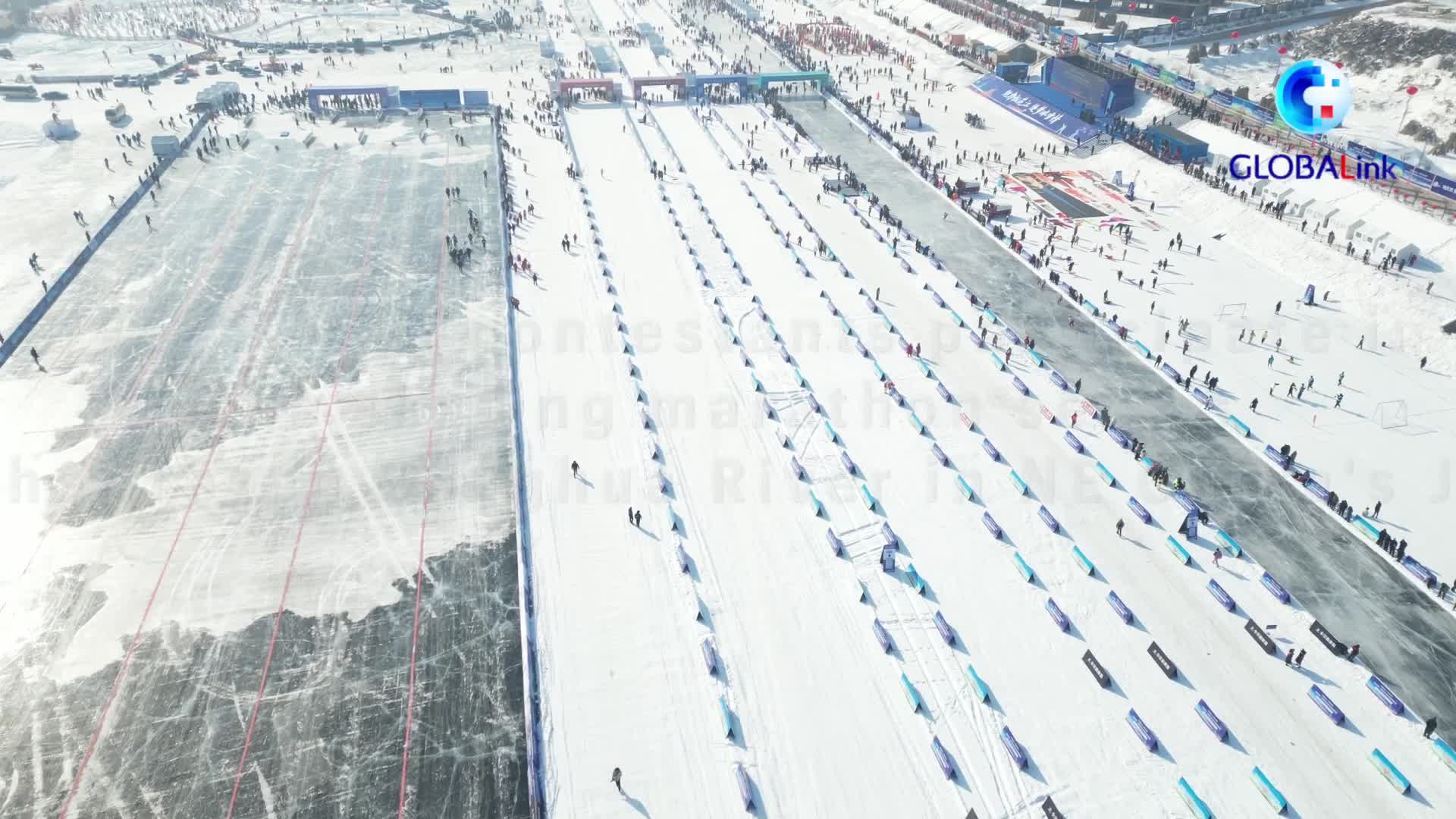* Chinese provincial-level regions have set several common goals for 2024, including fostering "new productive forces," boosting consumption and improving business environment.
* Their plans for 2024 have outlined the specific areas where "new productive forces" are to be anchored, from integrated circuit, new energy storage to commercial spaceflight.
* Many also highlighted the task of boosting spending, as the central economic work conference pledged to focus on "expanding domestic demand" for two consecutive years.
BEIJING, Feb. 1 (Xinhua) -- China's provincial-level governments are eyeing new economic engines ranging from AI to new energy vehicles, with a continuous focus on consumption, as indicated by their development plans for 2024.
All provincial-level regions have now unveiled their growth targets for 2024 in government work reports delivered to people's congresses. Their 2024 GDP growth targets vary from 4.5 percent to 8 percent, with the majority expecting to expand their economy by over 5 percent.
Closely-watched economic indicators aside, their documents have also revealed several common goals, with frequent mentions of "new productive forces," "boosting consumption" and "improving business environment."
They point to an ongoing transition toward high-quality economic growth and a greater reliance on the domestic market as China shifts its focus from post-pandemic recovery to sustained expansion.
NEW PRODUCTIVE FORCES
Most of the government work reports explicitly pledged to foster or expand "new productive forces" in their 2024 road maps.
The concept refers to a new form of productive forces derived from continuous sci-tech breakthroughs and innovation that drive strategic emerging industries and future industries in a more intelligent information era.
The central economic work conference, held late last year to chart economic development in 2024, said China will "promote industrial innovation through technological innovation ... to foster new industries, new models and growth drivers, and develop new productive forces."
The local government work reports have outlined the specific areas where new productive forces are to be anchored.
Guangdong Province, an economic powerhouse in south China, aims to boost new productive forces in industries including integrated circuit, new energy storage and commercial spaceflight. It also plans to foster future industries such as 6G technology and humanoid robots.
Liaoning Province, an old industrial base in northeast China, said it will promote clustered, integrated development of new materials, bio-medicine and other emerging industries.
Hainan, an island province that celebrated robust economic growth last year amid a tourism revival, has rolled out its vision on "new tracks" such as the seed industry and aerospace.
Pan Helin, a researcher at Zhejiang University, said new productive forces have become a buzzword on local government agendas as China pivots to a growth model that prizes quality over quantity.
"Chinese localities are under pressure in the economic transition. The new productive forces are expected to boost economic growth and help win over regional competition," Pan said.
CONSUMPTION AND BEYOND
Almost all local government work reports highlighted the task of boosting spending in 2024, as the central economic work conference pledged to focus on "expanding domestic demand" for two consecutive years.
Consumption was a significant growth driver in China last year. Final consumption contributed 82.5 percent to the country's GDP growth in 2023, up 43.1 percentage points from 2022.
Digital consumption, health-related consumption, nightlife and new energy vehicles are mentioned frequently in local government goals for the year ahead.
Municipalities including Beijing and Shanghai said they will push ahead with the construction of international consumption center cities, while provinces like Sichuan and Hunan also proposed turning their respective capital cities into global consumption hubs.
In addition, several provinces and autonomous regions with large rural populations have pledged to unleash potentials in rural consumption.
Gansu in northwest China proposed to increase the number of charging facilities in rural areas to encourage the use of new energy vehicles. Xizang in southwest China said it will promote sales of automobiles, furniture and home appliances in the countryside and boost rural e-commerce development.
Dong Yu, executive vice president of the China Institute for Development Planning at Tsinghua University, said local governments have come to prioritize new consumption markets that can boost industry and investment, rather than shopping coupons and promotions.
"They are also working harder to meet the demands of young people, which will in turn promote more new consumption," Dong said. "This rapidly upgrading market now provides an ideal testing ground for multinational companies to improve their global competitiveness."
Other common goals include increased investment in the livelihood and well-being sector, ranging from an employment-first policy to improving childcare services.
"This is in line with China's drive to promote common prosperity for all, while better social security will also spur consumption by dispelling worries for consumers," Pan said.
(Reporting by Yao Yuan, Jiang Wenxi, Tang Guhan, Zhang Yujie, Zhao Chenjie, Zhang Yuqi, Liu Fangzhou, Intern Pang Yecheng; Video reporters: Ding Chunyu, A Man, Zhang Yuqi, Li Shuai, Gao Ming, Zhao Yong, Mao Siqian, Li Sijia; Video editors: Zhang Qiru, Hui Peipei, Zhou Sa'ang) ■



